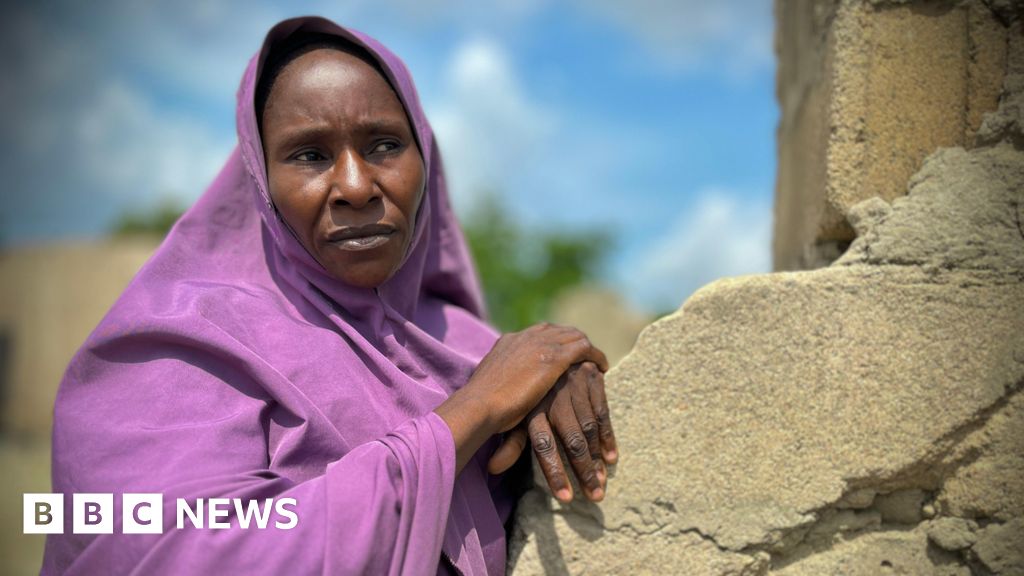By Chris Ewokor
Copyright bbc

One of the flood victims who has been affected by Islamist violence is Maryam Jidda.
She escaped her hometown of Damboa with her daughter and two grandchildren after it came under attack by Boko Haram around four years ago.
“They didn’t warn. They came like a dark wind in the night,” she recalls.
She thought she had found safety in Maiduguri. Then the floods came and forced her to flee for a second time.
She sat on a broken block from the debris of her destroyed house with her red gown, or jilbab, draped over her head down to the ground.
Eyes forlorn, the 72-year-old cut the figure of someone who had seen years of suffering and hardship.
“I stood in waist-deep water, crying,” Ms Jidda said as she recounted the life-changing moment water rushed into her compound, before it overwhelmed her house.
She is now living in temporary shelter where food is scarce and water unclean.
And not only did she lose her home, but also the photographs and belongings that carried her family’s memories.
‘I thought I would die with my six children’ – dam collapse survivor
One year on from the floods, many residents are still living in makeshift shelters, with no homes to go to.
Young people have also been particularly affected due to disruption to their education as well as the lack of jobs.
Ali Kadau, 21, told the BBC the flood “took everything” from him.
“Before the flood, I was managing. I didn’t go far in school, but I had small skills – I used to help at a mechanic workshop, fix tyres, run errands,” he said as he sat on a broken chair, driving away a swarm of flies in the hot Maiduguri weather.
Mr Kadau recalled how it started like every rainy season – the usual flooding in the streets. But this time, it didn’t stop. The water started entering people’s houses, and before long, the Gwange area where he lived was submerged.
“Our own house – built with mud – couldn’t stand the pressure. The walls fell. Water came in, carrying away everything. Our clothes, mats, food, even my phone that I used to get customers. All gone,” he lamented.
The family slept outside for three days before they found space at a nearby school turned shelter. There was no privacy, no comfort, just bodies lying side by side.
The mechanic shop he was working at was also affected – water destroyed the tools and machines.
“Now, I just sit around. No job. No school. No money to start anything. Sometimes I help push wheelbarrows in the market just to eat. Other days, I do nothing but think,” he said.



